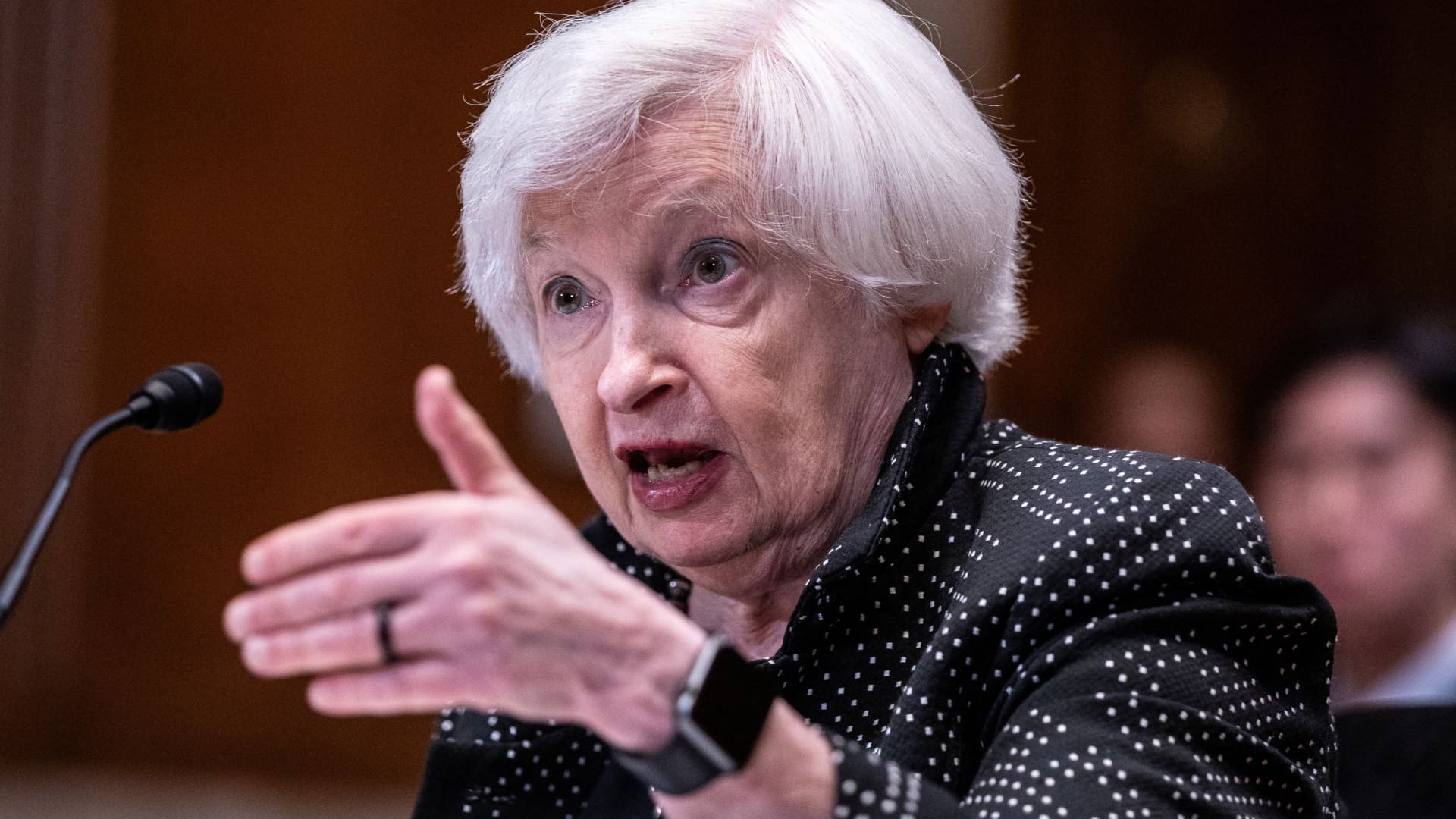Treasury Secretary Janet Yellen on Thursday said the swelling national debt is manageable as long as it stays around where it is relative to the rest of the economy.
In a CNBC interview, Yellen also noted that high interest rates are adding to the burden as the U.S. manages its massive $34.7 trillion debt load.
“If the debt is stabilized relative to the size of the economy, we’re in a reasonable place,” she told CNBC’s Andrew Ross Sorkin during a “Squawk Box” live interview. “The way I look at it is that we should be looking at the real interest cost of the debt. That’s really what the burden is.”
During the 2024 fiscal year, net interest costs on the debt have totaled $601 billion — more than the government has spent on health care or defense and more than four times what it has laid out for education.
Multiple Congressional Budget Office reports have warned about the soaring costs of debt and deficits, cautioning that over the next decade the public share of the national debt — currently about $27.6 trillion — will hit a new record as a share of the total economy over the next decade.
The public share of the national debt as a share of GDP is running at about 97% but is expected to soon top 100% at current spending rates.
Yellen touted President Joe Biden’s plans to manage the situation.
“In the budget the president presented for this coming fiscal year he proposes $3 trillion of deficit reduction over the next decade,” she said. “That’s sufficient to basically keep the debt to income ratio stable, and this interest burden would be stabilized.”
The budget deficit for 2024 is running at $1.2 trillion with four months left in the fiscal year. In 2023, the shortfall totaled $1.7 trillion.
The rising financing costs for the debt have come as the Federal Reserve pushed interest rates higher to bring down an inflation rate that had hit its highest level in more than 40 years in mid-2022. Inflation since has pulled back, but the Fed has held benchmark rates higher as it awaits more evidence that the rate of price increases is moving convincingly back to the central bank’s 2% target.
Following its policy meeting this week, the Fed said it has seen “modest” progress on inflation but is not ready to start reducing rates. Yellen, a former Fed chair, declined to comment on the central bank’s actions.
